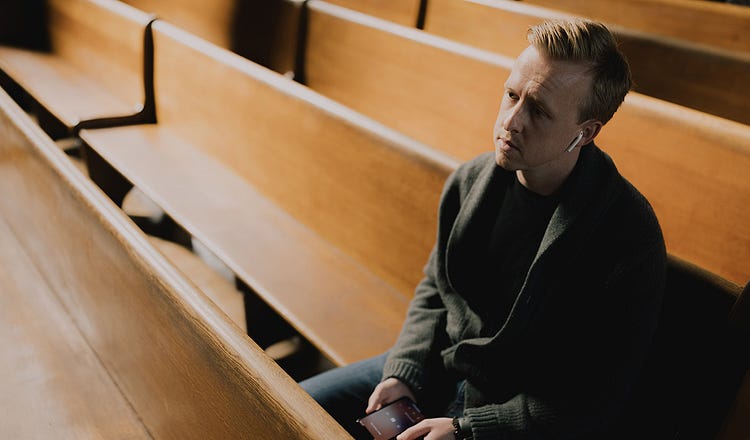
Sarah’s life was in tatters. Her affair was over, and so, it seemed, was her marriage. She was living in a hotel in Chicago, alienated from her husband and three children. All attempts to fill the void—with drugs, alcohol, anything—had failed.
“My options were to sit in misery,” she said, “or just to try to pray.”
Sarah, 39, was raised Catholic, but growing up, the religion seemed to her like little more than a list of rules—what you “shouldn’t do or you’re going to hell.” But after she hit rock bottom, in the summer of 2022, she wondered if the God of her childhood could help. She prayed for guidance, and a day or so later, she saw something on Instagram that felt like a sign.
It was a video advertisement for a religious app called Hallow, featuring a familiar but unexpected face: Hollywood actor Mark Wahlberg. He was inviting people to join him in praying the rosary, by listening to a recording on Hallow. (He owns part of the app.)

